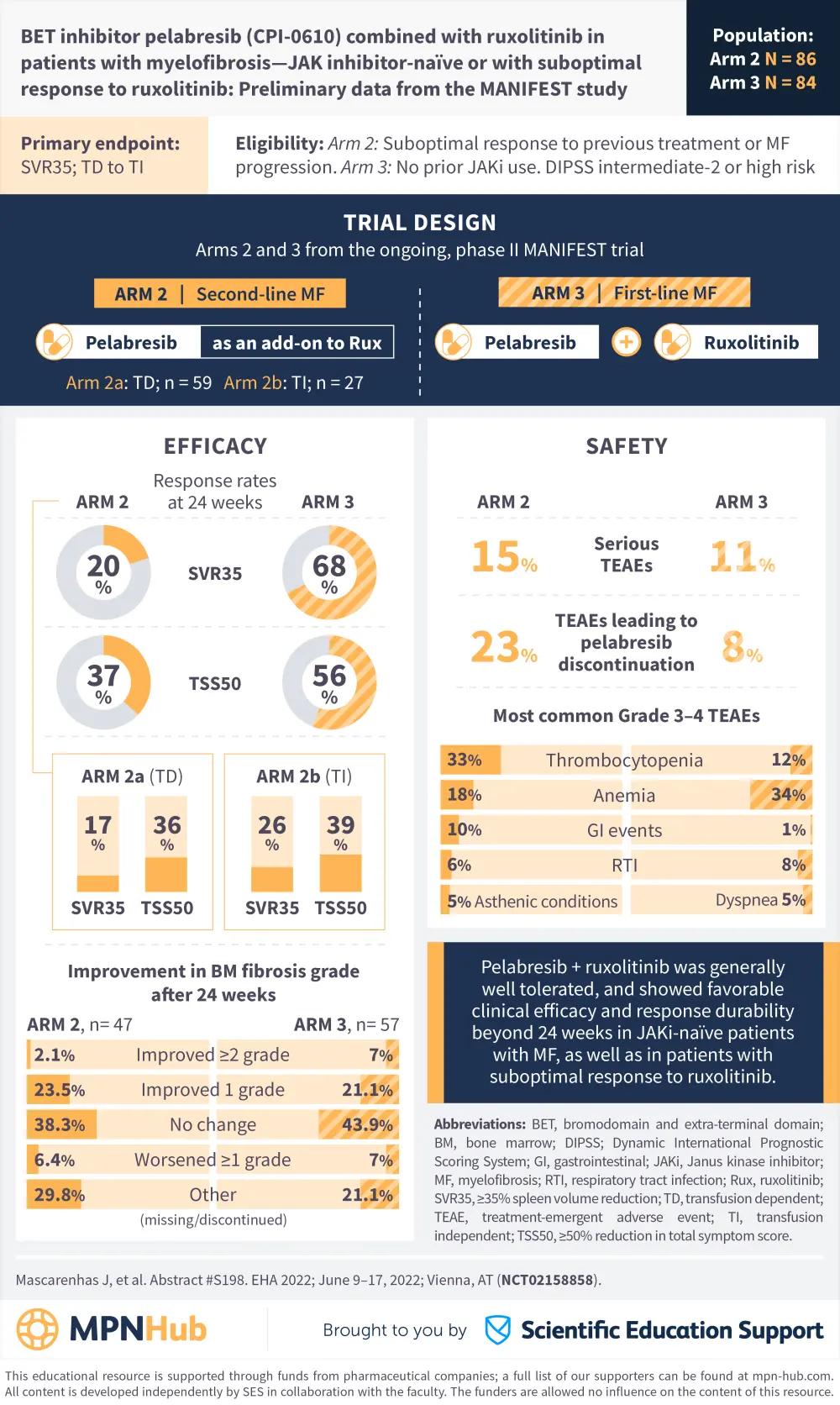All content on this site is intended for healthcare professionals only. By acknowledging this message and accessing the information on this website you are confirming that you are a Healthcare Professional. If you are a patient or carer, please visit the MPN Advocates Network.
The mpn Hub website uses a third-party service provided by Google that dynamically translates web content. Translations are machine generated, so may not be an exact or complete translation, and the mpn Hub cannot guarantee the accuracy of translated content. The mpn and its employees will not be liable for any direct, indirect, or consequential damages (even if foreseeable) resulting from use of the Google Translate feature. For further support with Google Translate, visit Google Translate Help.
The MPN Hub is an independent medical education platform, sponsored by AOP Health, GSK, Sumitomo Pharma, and supported through educational grants from Bristol Myers Squibb and Incyte. Funders are allowed no direct influence on our content. The levels of sponsorship listed are reflective of the amount of funding given. View funders.
Now you can support HCPs in making informed decisions for their patients
Your contribution helps us continuously deliver expertly curated content to HCPs worldwide. You will also have the opportunity to make a content suggestion for consideration and receive updates on the impact contributions are making to our content.
Find out more
Create an account and access these new features:
Bookmark content to read later
Select your specific areas of interest
View MPN content recommended for you
Visual abstract | MANIFEST trial: Updates from the EHA 2022 Congress
During the European Hematology Association (EHA) 2022 Congress, Claire Harrison1 presented the latest results from the ongoing, open-label phase II MANIFEST trial (NCT02158858) investigating pelabresib, a bromodomain and extraterminal (BET) protein inhibitor in myelofibrosis (MF) and essential thrombocytopenia (ET).1 The study comprises four study arms: pelabresib monotherapy in MF and ET (Arms 1 and 4, respectively), pelabresib add-on to ruxolitinib in patients with MF with suboptimal response or MF progression (Arm 2), and pelabresib in combination with ruxolitinib in Janus kinase inhibitor (JAKi)-naïve patients with MF (Arm 3).1
Harrison focused on results from Arms 2 and 3, which are summarized on the visual abstract below. Pelabresib was associated with bone marrow improvements which were determined by a decrease in megakaryocyte clusters (that correlated with SVR35 response), reduced reticulin density, and an increase in erythrocytes. There were also rapid (14 days) and durable (through 24 weeks) decreases in plasma levels of NF-κB targets and inflammation-related cytokines during the treatment.1

References
Please indicate your level of agreement with the following statements:
The content was clear and easy to understand
The content addressed the learning objectives
The content was relevant to my practice
I will change my clinical practice as a result of this content



